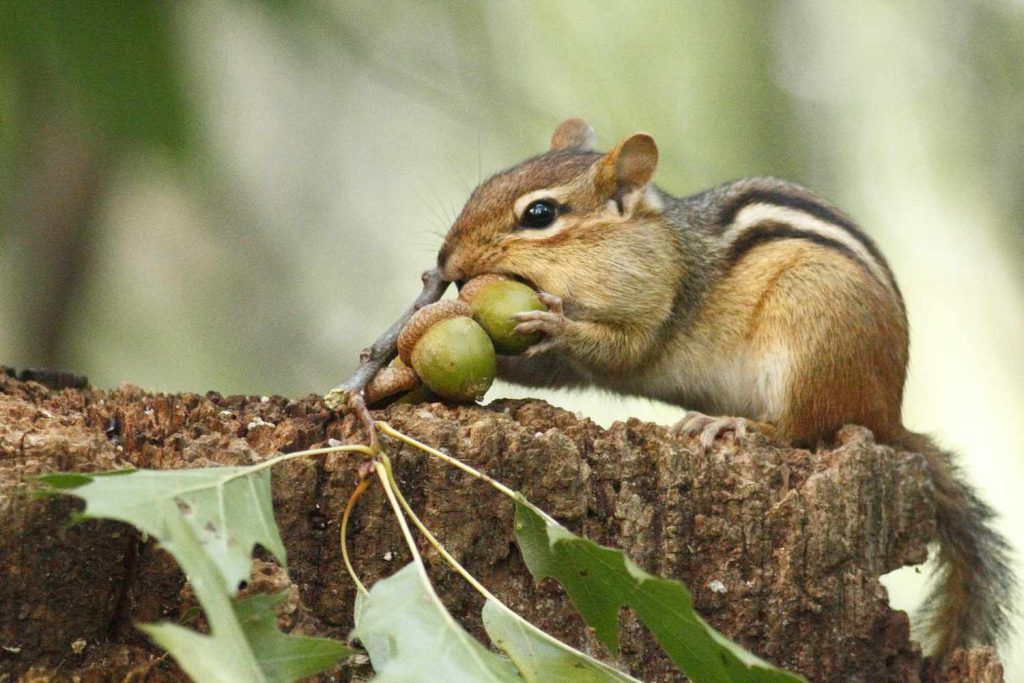Chipmunks are small, furry rodents that are found throughout North America. They are known for their distinctive striped backs and their habit of storing food in their cheeks. However, chipmunks are also preyed upon by a variety of predators, including birds of prey, snakes, and other mammals.

Birds of Prey
One of the primary predators of chipmunks are birds of prey, such as hawks and owls. These birds have keen eyesight and are able to spot chipmunks from great distances. Once they have located a chipmunk, they will swoop down and snatch it up in their talons. Larger birds of prey, such as eagles, can even take down adult chipmunks.
Snakes
Another common predator of chipmunks are snakes. Snakes are able to catch chipmunks both above and below ground, as they are able to slither through tight spaces and burrows. Garter snakes are a common predator of chipmunks, as they are able to catch them in open areas and can climb trees to catch them in their nests.
Other Mammals
Chipmunks are also preyed upon by other mammals, including weasels, foxes, and raccoons. These animals are able to catch chipmunks by surprise and quickly grab them with their sharp teeth and claws. In some cases, these predators may even dig up chipmunk burrows in order to catch them.

Chipmunk Defenses
Despite the many predators of chipmunks, these animals have a number of defenses that help them to survive in the wild. One of their primary defenses is their speed and agility. Chipmunks are able to run and jump quickly, allowing them to escape from predators in a hurry. They are also able to climb trees and other structures in order to evade predators.
Another defense that chipmunks have is their ability to burrow. Chipmunks often dig complex underground burrows, which provide them with shelter and protection from predators. These burrows can be several feet deep and contain multiple entrances and chambers, making them difficult for predators to access.
In addition to their physical defenses, chipmunks also have a number of behavioral defenses that help them to avoid predators. For example, they are extremely alert and aware of their surroundings, and will quickly flee at the first sign of danger. They also use vocalizations and scent marking to communicate with other chipmunks and to warn them of potential predators.

In conclusion, chipmunks are preyed upon by a variety of animals, including birds of prey, snakes, and other mammals. However, these animals have a number of defenses that help them to survive in the wild, including their speed, agility, burrowing abilities, and behavioral defenses. By using these defenses, chipmunks are able to avoid becoming prey and continue to thrive in their natural habitats.